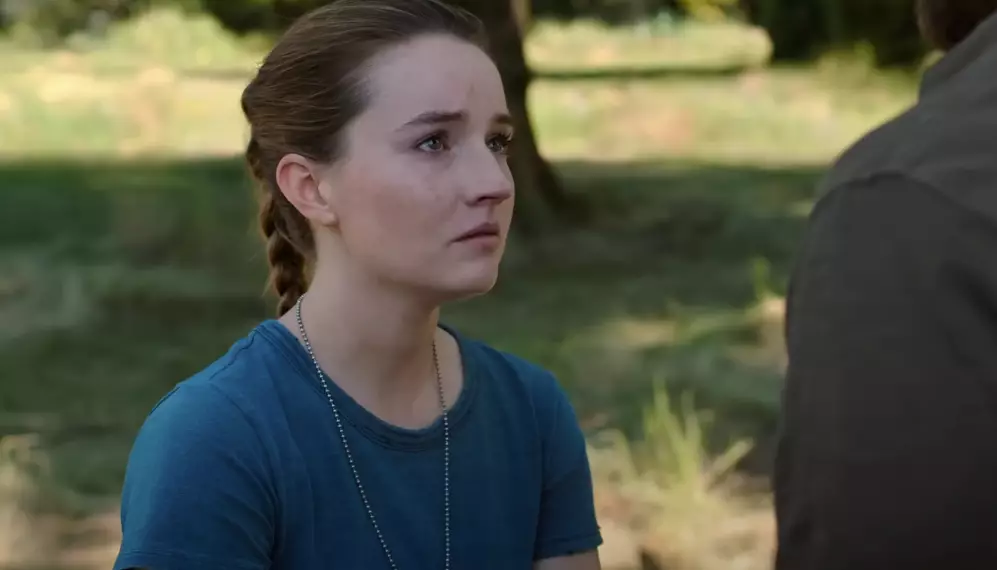The opening moments of *The Last of Us* Season 2 set a chilling tone, particularly through the lens of Kaitlyn Dever’s portrayal of Abby. Right from her haunting monologue, viewers are thrust into her depths of despair and revenge. Abby’s desire is not just to eliminate Joel; it’s about exacting a slow, devastating vengeance in response to the deeply personal pain of losing her father—an emotional conflict that resonates far beyond mere plot mechanics. Abby’s portrayal as an “ice queen,” as Dever described, hints at the excruciating emotional turmoil lying just beneath her frosty exterior. To Abby, revenge is not just a necessity; it becomes a twisted path toward closure. Such complexity invites scrutiny of the larger themes of justice and morality threaded through the narrative.
The Emotional Landscape of Vengeance
Dever’s reflections on Abby’s motivations tap into an essential truth about human nature: the visceral response to loss often spirals into a quest for retaliation. In her emotionally charged interpretation, Abby represents a character who wrestles with heartbroken sadness and lost aspiration. This duality elevates her—making her not merely a villain, but a tragic figure who envelops herself in grief, viewing revenge as her only recourse. The portrayal complicates audience perceptions and ignites conversation about the implications of such actions. Do we condone revenge in the face of profound loss? Or does a craving for vengeance, albeit understandable, spiral into an abyss that extracts more suffering than it resolves?
Acknowledging the Weight of Public Perception
The discourse surrounding Abby’s character is a real phenomenon, especially as the series adapts material from a contentious video game that polarized audiences. Dever has acknowledged awareness of the ongoing debate, yet she wisely chooses not to let it dictate her performance. Her deliberate focus on delivering a multifaceted portrayal rather than catering to external pressure is commendable. Accepting the public’s scrutiny while still harnessing her artistic freedom is a balancing act that marks a maturity in Dever’s approach. It raises critical questions about the impact of public reaction on artistic interpretation and the courage required to embody a character steeped in controversy.
The Trust Between Creators and Performers
One of the more intriguing aspects derived from Dever’s commentary is the unwavering confidence exhibited by the show’s creators, Craig Mazin and Neil Druckmann. Their approach is straightforward yet profound; they trust their cast to deliver nuanced performances aligned with their vision. Dever’s casting as Abby without the traditional audition process underscores the magnitude of that trust. This faith in an actor not only reflects an insightful casting decision but also enhances the collaborative environment necessary for such a challenging narrative. It promotes an atmosphere where actors can take risks, explore complex emotions, and ultimately provide audiences with layered performances that resonate.
Initial Success and Future Implications
The Season 2 premiere of *The Last of Us* has evidently captured attention, boasting a remarkable 5.3 million same-day viewers—an increase from the first season’s debut. Such engagement hints at the show’s capability to cultivate a devoted follower base eager to explore deep narratives interwoven with emotional stakes. However, with this heightened viewership comes the heightened expectation of navigating fraught themes like accountability, grief, and trauma in a manner that is both sensitive and thought-provoking. As Abby’s story progresses in upcoming episodes, audiences are bound to witness the complex interplay of revenge and redemption, inviting deeper discussions about morality wrapped in the guise of thrilling entertainment.
In navigating through these intricate character developments and thematic explorations, *The Last of Us* delves into a narrative tapestry rich in emotional resonance while challenging viewers to confront their own perspectives on justice and retribution. As the series unfolds, the audience is left poised for an intense engagement with stories that resonate well beyond the screen.

